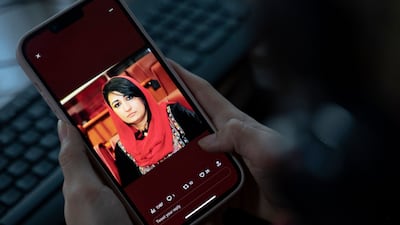A former Afghan MP and her bodyguard have been shot dead in a night-time attack at her home in Kabul, police said.
A brother of the former lawmaker was wounded in the attack, which took place sometime between Saturday and Sunday, officers said.
Mursal Nabizada was a member of Afghanistan's parliament in the US-backed government that was overthrown by the Taliban in August 2021.
"The security forces have started a serious investigation into the incident," Kabul police spokesman Khalid Zadran said.
Former MP Mariam Solaimankhil wrote on Twitter that Ms Nabizada was a "fearless champion for Afghanistan".
"A true trailblazer — strong, outspoken woman who stood for what she believed in, even in the face of danger.
"Despite being offered the chance to leave Afghanistan, she chose to stay and fight for her people."
Ms Nabizada, 32, hailed from the eastern province of Nangarhar, and had been elected as a member of parliament from Kabul in 2018.
Hannah Neumann, a member of the European parliament, said on Twitter that she was "sad and angry and wants the world to know".
"She was killed in darkness, but the Taliban build their system of gender apartheid in full daylight."
Women rose to prominent positions across Afghan society in the two decades since the US-led invasion toppled the Taliban's former regime, with many becoming judges, journalists and politicians.
Many women in such professions fled the country after the Taliban returned to power.
Taliban authorities have rapidly squeezed women out of almost all areas of public life, banning them from secondary and higher education, working in the public sector or foreign aid organisations, and visiting public parks and baths.
They have also ordered women to cover themselves in public, ideally in an all-encompassing burqa.














